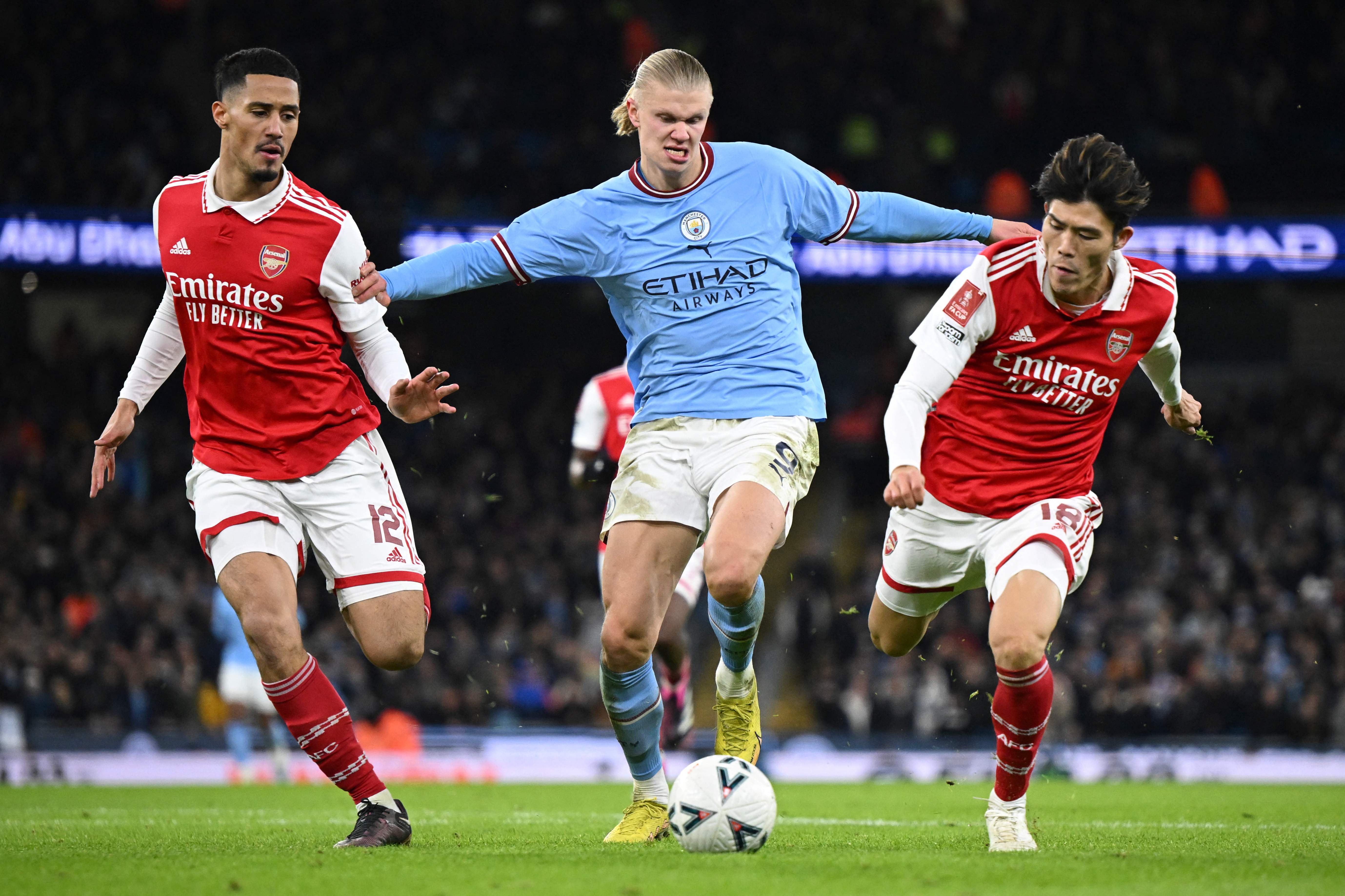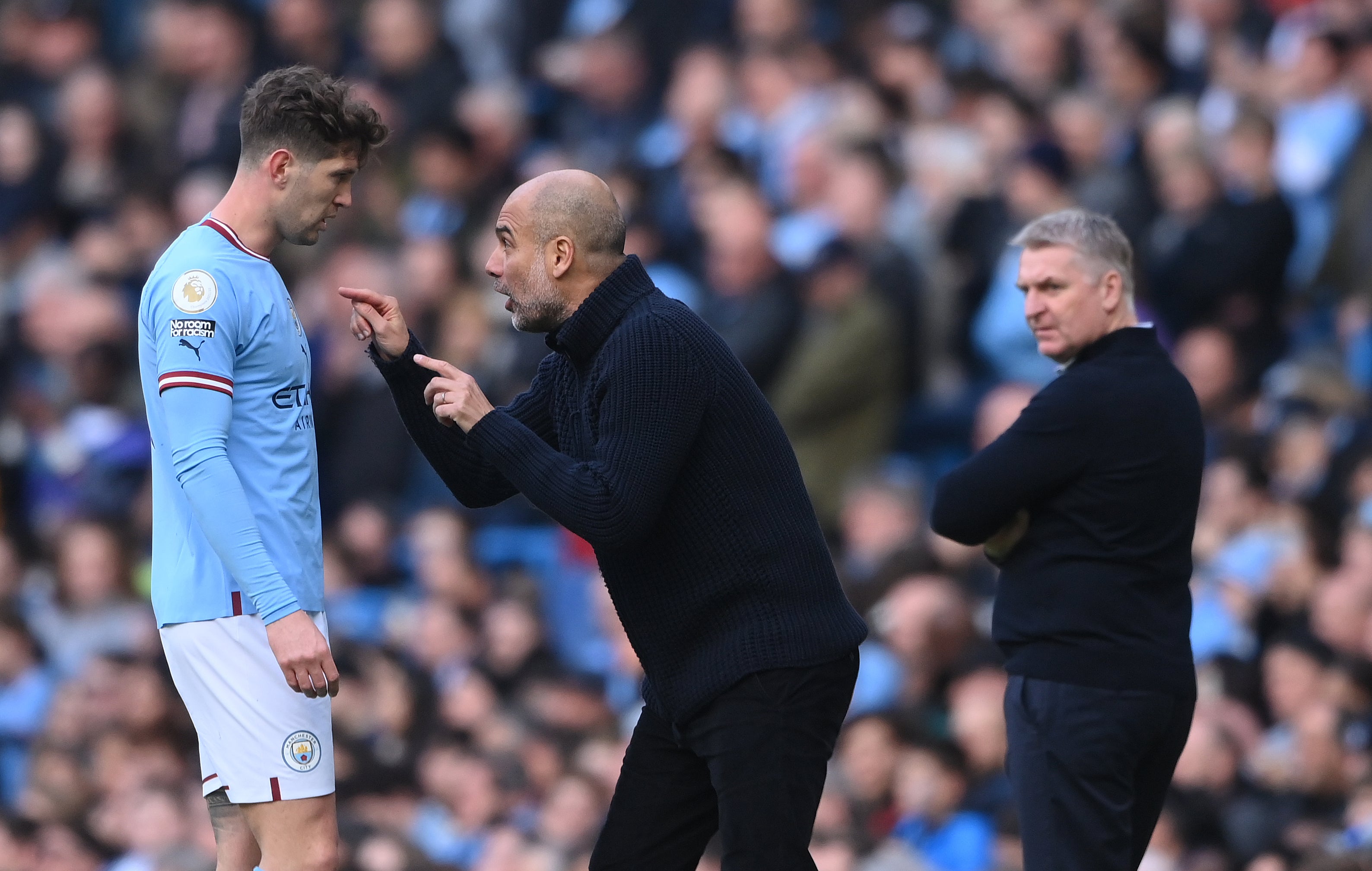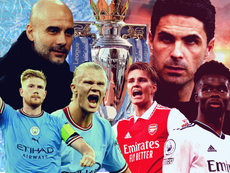Pep Guardiola inspired Mikel Arteta – then he moved another step ahead
If tonight’s title decider is the meeting of master and apprentice at the top of the Premier League, Guardiola has reinvented the Manchester City side Arteta’s Arsenal were built on

Your support helps us to tell the story
From reproductive rights to climate change to Big Tech, The Independent is on the ground when the story is developing. Whether it's investigating the financials of Elon Musk's pro-Trump PAC or producing our latest documentary, 'The A Word', which shines a light on the American women fighting for reproductive rights, we know how important it is to parse out the facts from the messaging.
At such a critical moment in US history, we need reporters on the ground. Your donation allows us to keep sending journalists to speak to both sides of the story.
The Independent is trusted by Americans across the entire political spectrum. And unlike many other quality news outlets, we choose not to lock Americans out of our reporting and analysis with paywalls. We believe quality journalism should be available to everyone, paid for by those who can afford it.
Your support makes all the difference.The architect of the possession revolution surveyed a potential title decider and considered Mikel Arteta and Arsenal’s approach. Pep Guardiola concluded: “It is not going to be a game where one team has 65 or 70 per cent possession. It is not going to happen.”
Nor, perhaps, would it have been expected to in the pre-Pep era. Now a shared ethos may bring a share of the ball. But only after a shift in marquee matches. One team would play with the ball, one without. Even against the best of the rest, Guardiola’s sides were so superior at that facet of football that summit clashes became studies in contrasting tactics. “Their style,” said Arteta. “They have brought something very different to this league that hasn’t been seen before.”
And to other leagues. Jose Mourinho’s Inter famously prevailed at the Nou Camp in the 2010 Champions League semi-finals with a mere 24 per cent of possession. If it was partly because they spent the majority of the match with 10 men, across three clubs – the Nerazzurri, Real Madrid and Manchester United– Mourinho’s teams would have about one-third of possession: 33 per cent when losing a Clasico to Barcelona 5-0, 35 when winning a Manchester derby at the Etihad in 2018.
Mourinho adopted a low-block approach to try and stop Guardiola, Jurgen Klopp a tactic of high pressing and quick counter-attacking but there was one common denominator. When the German’s Liverpool knocked City out of the Champions League in 2018, they had 34 per cent of the ball in a 3-0 win at Anfield, 32 per cent in a 2-1 triumph at the Etihad. Antonio Conte’s teams have beaten Guardiola’s with between 29 and 40 per cent of the ball.
There are times when Guardiola has lost the battles but won the war. If he has seen off his opposites – perhaps only temporarily in Klopp’s case, but probably more permanently in Conte’s and Mourinho’s – his next challenge comes from his imitators and his apprentices. If Arsenal evade defeat at the Etihad on Wednesday, if Arteta finishes first, perhaps, in a way, it will almost be Guardiola’s fifth Premier League title. With Vincent Kompany starting to appear on star-studded shortlists, maybe three of the elite next season will be under the auspices of three of the same managerial family tree. Next season’s Champions League could pit him against another of his protégés, Xavi: maybe even Xabi Alonso, too.
For now, however, Arteta stands in his way and follows in his footsteps. City have the most possession in the Premier League this season, 65.2 per cent, Arsenal the second most, at 60.8. “Long ago I was watching Arsenal with Arsene Wenger and always have incredible detail or care with the ball,” Guardiola said. “The players they select are of the biggest quality and biggest skills but Mikel bring them another dimension.” When City won 3-1 at the Emirates Stadium in February, it was Arsenal who had the 64 per cent share of the ball, Guardiola who prevailed, in the manner of Mourinho, Conte and Klopp, with less of it. With seven wins in eight meetings with Arteta, he has won the battles. He risks losing this particular war.
If Arteta is putting the lessons learned as Guardiola’s assistant into practice, there is a case for arguing the bona fide Pep team is found in north London now. Guardiola is the purist who has started to show a pragmatic streak. City had a minority share of the ball in each leg of their Champions League quarter-final against Bayern Munich. City, the team of the false nine, have amended their approach to suit Erling Haaland’s pace, height and finishing prowess. They can go more direct. “With him they have the capacity to play in different ways,” Arteta reflected. “When you play really far from your goal they have the capacity to exploit open spaces and when they’re attacking low blocks they have a different threat because they are a very physical team right now.”

Now two of Guardiola’s favoured tactics are deployed by his old sidekick featuring his former players. Oleksandr Zinchenko is the inverted full-back, the converted midfielder who comes into the centre of the pitch as Fabian Delph used to do. Gabriel Jesus is the No. 9 Guardiola used to argue was the best at high pressing in the world. “No regrets,” he said of the decision to sell each to Arsenal. Arteta has reimagined Granit Xhaka as a “free eight”, to borrow Kevin De Bruyne’s term for two of Guardiola’s midfield. The closest thing to Leroy Sane, a catalyst of Guardiola and Arteta’s 100-point City team, on show at the Etihad will be Gabriel Martinelli.
The counter-argument is that Arteta has tried to construct the 2018 City team; that Guardiola has evolved again, with John Stones as the passer who can step into midfield, sometimes from right-back, but who brings a centre-back’s solidity, with Jack Grealish and Bernardo Silva on the flanks offering less dynamism than Sane and Raheem Sterling used to but offering more control. If Mourinho was trying to turn back time to 2004, is Arteta trying to win the 2018 title?

Certainly he cannot use Guardiola as a sounding board any more. Arteta thinks they last talked was when their teams last met, in February. Perhaps becoming Guardiola’s most formidable rival now has altered the equation. “The problem was that Arsenal were unstoppable, they made 50 points in one leg [half of the season],” the older man noted. “When this happens then hats off.” It is a mutual admiration society, rather than an attempt at mind games.
“He lives in London, I live here, so we speak less,” Guardiola said. “We’re rivals right now, that happens, but nothing has changed. It’s not the first time in sport history [that this has happened]. I was a football player, I had friends in other teams, you want to win, but in the end the relationship remains.”
Arteta added: “Five years ago, if somebody had had told he we would be in this position, going toe to toe with them… it’s a beautiful experience.” For Mourinho, however, such a scenario would be a bloody war.
If Guardiola’s relationship with the Portuguese descended into toxic, bitter enmity, his fondness for Arteta remains. But perhaps that is in part because his old ally is trying to do it Pep’s way.






Join our commenting forum
Join thought-provoking conversations, follow other Independent readers and see their replies
Comments